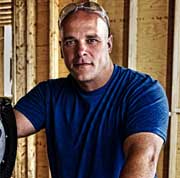A well-maintained plumbing system is essential for the smooth functioning of any property. Neglecting routine maintenance can lead to costly repairs and inconvenience. To ensure the longevity and efficiency of your plumbing, it’s crucial to implement a year-round checklist for professional plumbing maintenance. In this blog, we will discuss seasonal maintenance tasks, preventive measures, and the importance of educating clients on routine maintenance.
Seasonal Maintenance Tasks for Plumbing Systems:
Spring: Inspect Outdoor Plumbing
As the winter frost thaws, it’s essential to inspect outdoor plumbing components. The plumber Sydney can check for any damage to hoses, faucets, and irrigation systems. Replace any worn-out washers, and ensure that outdoor pipes are free from blockages. This is also an ideal time to inspect your sump pump to ensure it’s in good working condition for the upcoming rainy season.
Summer: Monitor Water Heater Performance
Summer is the perfect time to assess the performance of your water heater. Flush the tank to remove sediment buildup, check for leaks, and ensure that the pressure relief valve is functioning correctly. If your property has a tankless water heater, schedule a professional inspection to guarantee optimal efficiency.
Fall: Clear Gutters and Downspouts
As the leaves start falling, gutters and downspouts can become clogged, leading to water damage and potential plumbing issues. The professional plumber Sydney can clean gutters and downspouts to prevent water from overflowing and damaging your property’s foundation. Additionally, check for any leaks in your indoor plumbing system, as colder weather can exacerbate existing issues.
Winter: Protect Against Freezing Pipes
Winter is the season where pipes are most vulnerable to freezing. Insulate exposed pipes in unheated areas, such as basements, attics, and crawl spaces. Keep cabinet doors open to allow warm air to circulate around pipes under sinks. When temperatures drop significantly, let faucets drip to prevent water from freezing in the pipes. Regularly check for signs of freezing, such as reduced water flow, and take immediate action if necessary.
Preventive Measures to Avoid Major Issues:
Regular Inspections:
Schedule routine inspections of your plumbing system to identify potential issues before they escalate. A professional plumber can conduct thorough checks for leaks, corrosion, and other signs of wear and tear. Early detection allows for timely repairs, saving you money in the long run.
Proactive Leak Detection:
Invest in a leak detection system to identify leaks promptly. Modern technology allows for the installation of sensors that can detect even minor leaks, preventing water damage and mold growth. Addressing leaks early not only preserves the integrity of your plumbing system but also conserves water, contributing to environmental sustainability.
Water Pressure Regulation:
High water pressure can strain your plumbing system and lead to premature wear of pipes and fixtures. Install a pressure regulator to maintain an optimal water pressure level. This simple preventive measure can significantly extend the lifespan of your plumbing components.
Educating Clients on the Importance of Routine Maintenance
Cost Savings:
Emphasize the cost-saving benefits of routine plumbing maintenance. Regular inspections and preventive measures can identify and address issues early on, preventing the need for expensive repairs. Clients who invest in routine maintenance are likely to spend less on emergency plumbing services in the long term.
Property Value:
Maintaining a well-functioning plumbing system contributes to the overall value of a property. Regular maintenance not only prevents issues but also ensures that the plumbing meets industry standards. This is particularly crucial for homeowners looking to sell their property or landlords seeking to attract quality tenants.
Environmental Impact:
Educate clients on the environmental impact of a well-maintained plumbing system. By preventing leaks and conserving water, they contribute to water conservation efforts and reduce their ecological footprint. A sustainable approach to plumbing maintenance aligns with the growing awareness of environmental responsibility.
Health and Safety:
Highlight the connection between routine plumbing maintenance and the health and safety of occupants. Leaky pipes and standing water can contribute to mold growth, which poses serious health risks. By addressing plumbing issues promptly, clients can create a safer and healthier living or working environment. This is especially crucial for those with respiratory conditions, allergies, or sensitivities.
Peace of Mind:
Routine plumbing maintenance provides clients with peace of mind, knowing that their plumbing system is in good condition. It eliminates the stress and inconvenience associated with unexpected plumbing emergencies. Clients can confidently go about their daily lives without the fear of waking up to a flooded basement or dealing with a sudden lack of hot water.
Compliance with Regulations:
Educate clients about the importance of complying with local plumbing regulations. Routine maintenance ensures that the plumbing system adheres to safety and building codes. Non-compliance can result in fines and, in severe cases, may lead to legal consequences. Keeping the plumbing system up-to-date with regulations not only avoids penalties but also ensures the well-being of occupants.
Conclusion
Professional plumbing maintenance is a year-round commitment that pays dividends in terms of cost savings, property value, and environmental impact. By adhering to a seasonal checklist and implementing preventive measures, property owners can ensure the longevity and efficiency of their plumbing systems. Moreover, educating clients on the importance of routine maintenance establishes a proactive approach that benefits both their properties and the environment.











